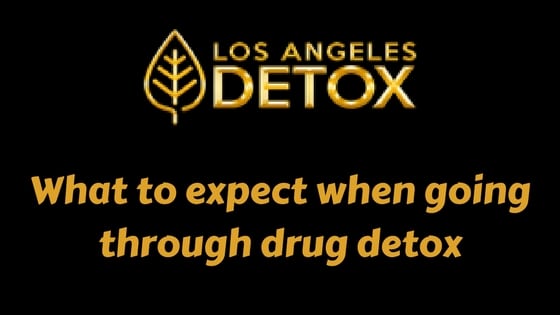You can expect to experience withdrawals. The types of withdrawals will vary depending on the your drug of choice. For example:
- Heroin and prescription painkiller abusers will experience flu-like symptoms lasting 24-48 hours.
- Benzo abusers experience anxiety and seizures that could last weeks.
- Cocaine abusers can expect to be depressed and restless for 7-10 days.
- Alcohol withdrawals are the most dangerous, causing tremors and seizures that last three days to several weeks.
Drug Detox
Drug detoxification, or drug detox, is normally the first step in an overall drug rehab program. Detox can help you prevent unpleasant or fatal consequences resulting from the sudden stoppage of using drugs
The goal of our detox program is to aid in physiological healing after long-term drug addiction. We start by stabilizing the patient and then the detox starts. After initial stabilization the focus of detox is to monitor and support the various processes the body uses to rid itself of the drug.
Comprehensive Addiction Treatment
It’s important to understand that detox is just the first step in an overall addiction treatment plan. Studies consistently show that the longer you stay in treatment the less likely you are to relapse. Detox alone will help you stop using drugs, but without follow-up care and therapy, the risk of relapse is increased drastically.
First Stage of Drug Detox
During the first stage of drug detox, medical and psychiatric staff members will be on hand to provide 24/7 support. The first few hours of detox is called the stabilization period. During this period a number of issues can come up. The most urgent needs will be handled first, followed by the next and the next until full stabilization. Some common issues during the first stage of drug detox include:
-
Violence
Some drugs can increase violent behaviors in users.
-
Psychosis
Psychosis is a dangerous complication brought on by the effects of some drugs, such as cocaine. If someone uses excessive amounts of cocaine, they can become paranoid and even experience full-blown psychosis. Symptoms include visual and auditory hallucinations and delusional thinking. Other reasons for psychosis include the presence of a co-occurring mental health disorder, such as schizophrenia, or a lack of sleep due to stimulant use.
-
Injury
In some cases, patients may hurt themselves while under the influence of drugs or if they have been physically or sexually assaulted before entering detox.
-
Medical Illness
Many people who suffer from chronic, debilitating pain are prescribed opioid painkillers. Unfortunately, it’s possible to develop a dependence and subsequent addiction to these medications. As the patient begins to detox from the prescription opioid, their severe pain will return in addition to uncomfortable withdrawal symptoms. It’s important to be aware of the individual’s medical history and treat the symptoms of pain appropriately before proceeding.
-
Threat to Self
Withdrawal from opioids and other substances can be associated with severe depressive symptoms that might be connected to suicide attempts and completed suicides. Patients who exhibit suicidal behaviors or thoughts must be protected at all times. Once these acute issues have been assessed and identified during evaluation, they’ll immediately be treated until they have passed or the patient has been stabilized. At that time, attention and focus can turn to dealing with withdrawal symptoms associated with detox.







